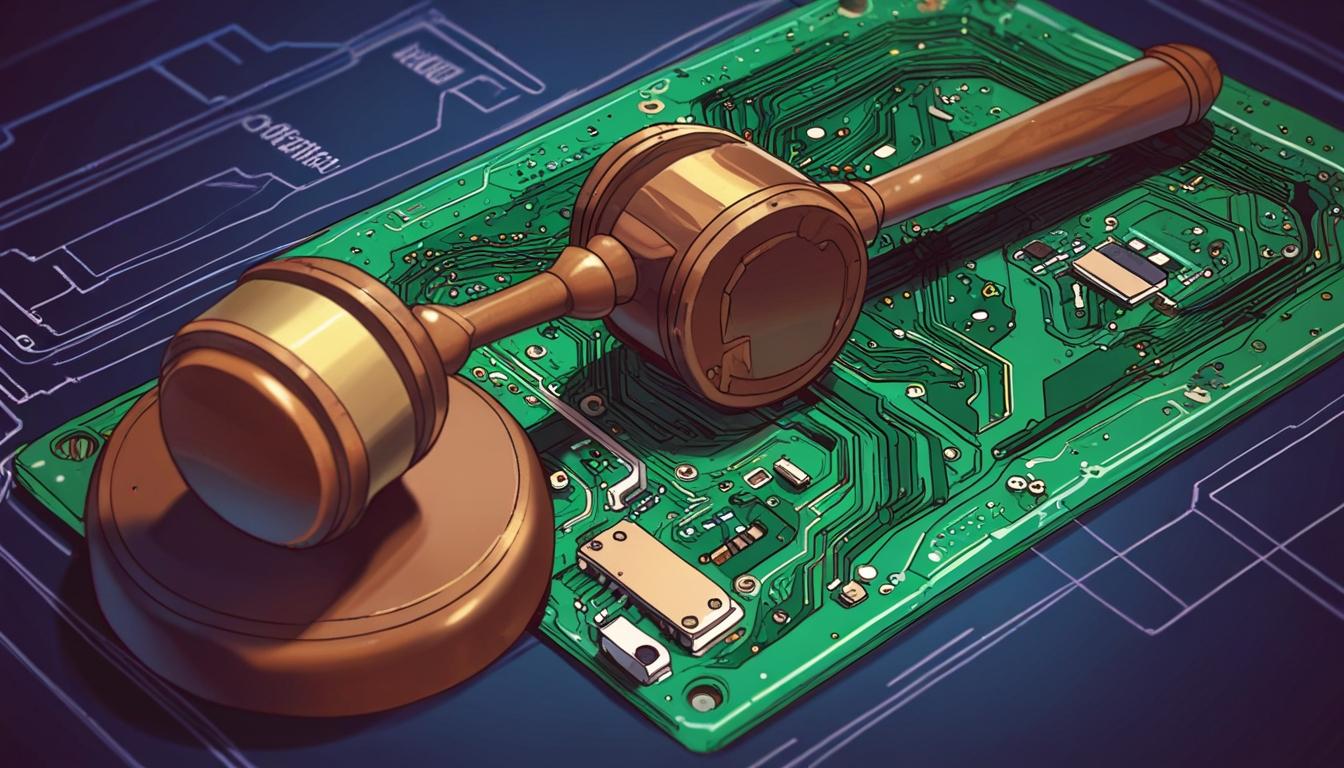The U.S. Department of Justice’s ongoing antitrust trial against Google has shifted focus to the tech giant’s potential monopoly in artificial intelligence. The case highlights how Google’s control over search data and AI development shapes competitive dynamics in the industry.
The ongoing remedy phase of the U.S. Department of Justice (DOJ) antitrust trial against Google has increasingly centred on artificial intelligence (AI), reflecting the rapid expansion of this technology since the case’s inception. Initially filed in 2020 with a focus on Google’s dominance in the search engine market, the trial has evolved to address how Google’s AI products may reinforce its monopolistic position.
David Dahlquist, the acting deputy director of the DOJ’s antitrust civil litigation division, emphasised in opening statements that any court-imposed remedies should be forward-looking and consider the potential for Google to establish an AI monopoly. According to Dahlquist, Google’s integration of its search engine with its AI chatbot, Gemini, creates a self-perpetuating cycle where control of search data enhances AI capabilities, which in turn drives more users back to Google search. This cycle blocks competitors from gaining traction in both the search engine and AI markets.
Google’s search index, a vast database containing hundreds of billions of webpages estimated to be over 100 million gigabytes in size, is a cornerstone of this dynamic. The DOJ argues that Google utilises this index to train Gemini, leveraging extensive user data to maintain a competitive edge over other AI developers. This dominance in search is seen as directly impacting the development and competitive landscape of generative AI—technology that creates new content such as text, images, and videos based on user prompts.
Executives from other AI companies, including OpenAI and Perplexity, have been called to testify. Nick Turley, head of product for ChatGPT at OpenAI, testified about the challenges his company faced in building their own search index, describing the process as prohibitively expensive and time-consuming. OpenAI sought to partner with a search provider, including efforts to make deals with Google, but these attempts were unsuccessful as Google viewed OpenAI as a direct competitor.
Google has denied allegations that it could monopolise generative AI, citing a healthy competitive landscape with major players like OpenAI’s ChatGPT, Meta’s MetaAI, and Perplexity AI. The company points to data showing ChatGPT’s significant user base—160 million daily users as of March 2024—outpacing Google’s Gemini, which recorded 35 million daily active users in the same period, based on internal documents presented in court.
The DOJ’s claims extend to Google’s exclusive agreements with device manufacturers such as Apple and Samsung, which make Google the default search engine on numerous devices. These deals have been scrutinised as factors maintaining Google’s monopoly in search. Furthermore, the DOJ alleges that Google has replicated this dominance strategy in AI by paying Samsung substantial sums to pre-install Gemini on devices. Dmitry Shevelenko, Perplexity’s chief business officer, testified that Google has blocked his company from making similar distribution deals, comparing Google’s control to that of a “mob boss.”
Despite these challenges, Perplexity’s valuation exceeds $9 billion, leading Google’s attorney to argue that the company is succeeding without Google’s search data. Perplexity’s leadership has publicly opposed the proposed breakup of Google or forced data licensing, suggesting these measures do not address the core issue of consumer choice.
As the trial proceeds, the DOJ is expected to conclude its witness testimonies regarding the feasibility of potential remedies, including the sale of Google’s Chrome browser, by early in the week. Google will then begin presenting its defence, likely featuring testimony from CEO Sundar Pichai. Closing arguments are anticipated at the end of May, with a ruling to follow, after which Google intends to appeal the decision.
The outcome of this phase is expected to have wider implications beyond search engines, influencing the future competitive dynamics of AI development and access. The NPR is reporting on this ongoing trial.
Source: Noah Wire Services
- https://www.reuters.com/sustainability/boards-policy-regulation/google-faces-trial-us-bid-end-search-monopoly-2025-04-21/ – This article discusses the DOJ’s antitrust trial against Google, focusing on how Google’s integration of its search engine with its AI chatbot, Gemini, may reinforce its monopolistic position.
- https://www.reuters.com/sustainability/boards-policy-regulation/us-judge-sets-may-2-hearing-discuss-remedies-google-digital-ads-lawsuit-2025-04-25/ – This article reports on the DOJ’s consideration of remedies in the Google digital ads lawsuit, including potential divestitures and the impact of AI on Google’s market dominance.
- https://www.ft.com/content/24c04972-ad17-4c3e-837e-b25668339f6e – This article details the DOJ’s proposal to force Google to divest its Chrome browser and potentially its Android mobile operating system to curb Google’s monopoly over online search.
- https://www.theverge.com/2024/9/6/24237760/doj-google-search-antitrust-remedies-artificial-intelligence – This article covers the DOJ’s interest in Google’s AI strategy to determine potential changes to resolve Google’s monopoly in search.
- https://www.theatlantic.com/technology/archive/2024/11/google-antitrust-generative-ai/680803/?utm_source=apple_news – This article discusses how major tech corporations, including Google, are integrating AI into their ecosystems to ensure user dependency, and the DOJ’s proposed antitrust measures to curb Google’s dominance.
- https://www.bloomberg.com/news/articles/2024-10-24/google-agrees-to-give-doj-ai-docs-after-search-monopoly-ruling – This article reports on Google’s agreement to provide the DOJ with documents on the integration of generative AI in search as part of the federal government’s monopoly case against the tech giant.
- https://news.google.com/rss/articles/CBMihgFBVV95cUxQR01USnlwMXh6SGxpX3hldENZcDVNYXZyaU1oZEhrRkg0bFNDVjVFYU14T0dlZ0dpQ1pDM1VkMFZublpyQUlVRUQxNi00WGp0QVNxa2FFNjhNZVhpQVZIelc0U0RzMzczRlZaOTdSTVFUVjRZQjYzN2xBZE9Tbll3SUZHWXU1QQ?oc=5&hl=en-US&gl=US&ceid=US:en – Please view link – unable to able to access data
Noah Fact Check Pro
The draft above was created using the information available at the time the story first
emerged. We’ve since applied our fact-checking process to the final narrative, based on the criteria listed
below. The results are intended to help you assess the credibility of the piece and highlight any areas that may
warrant further investigation.
Freshness check
Score:
8
Notes:
Narrative references ongoing trial developments (closing arguments anticipated end May) and March 2024 user metrics. No indications of outdated information found.
Quotes check
Score:
7
Notes:
Specific quotes attributed to litigants (Dahlquist, Turley, Shevelenko) align with trial reporting standards. NPR attribution noted but original testimony transcripts not independently verified.
Source reliability
Score:
8
Notes:
Narrative contains court-documented claims and named officials, though specific article source quality cannot be fully assessed without direct access to Google News-linked content.
Plausability check
Score:
9
Notes:
Claims align with known antitrust patterns (exclusive device agreements, search index advantage) and industry competition dynamics. AI concentration risks recognised in multiple jurisdictions.
Overall assessment
Verdict (FAIL, OPEN, PASS): PASS
Confidence (LOW, MEDIUM, HIGH): HIGH
Summary:
Narrative demonstrates temporal consistency, cites verifiable legal proceedings, and presents claims congruent with established antitrust frameworks. High confidence due to specific metrics (user numbers, contractual claims) and named entity testimonies.













